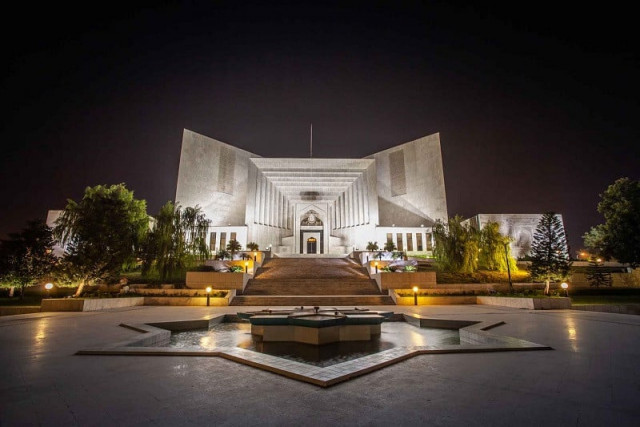The Supreme Court of Pakistan (SCP) on Monday continued hearing on a case concerning the applicability of super tax to provident funds. A five-member constitutional bench, headed by Justice Aminuddin Khan, is examining the arguments from the Federal Board of Revenue (FBR) and opposing counsel.
During proceedings, FBR counsel Asma Hameed argued, “The legislature has provided partial relief to provident funds under the super tax law.”
Justice Muhammad Ali Mazhar remarked that Section 53 of the Income Tax Ordinance relates to exemptions, adding: “A fund is not anyone’s private property; trustees manage it, and tax is applied to the relevant authority.”
Justice Aminuddin Khan observed that responsibility for payment of super tax was set out in the schedule. Justice Hasan Azhar Rizvi questioned the rationale: “When income tax cannot be imposed, how can super tax be imposed? For example, if Rs100 is taxed on a fund now, in 25 years it could grow to Rs550 — meaning retirement benefits would be lost.”
Additional Attorney General maintained that the second schedule provided exemptions on provident funds for ‘super tax as well as all other taxes’. Justice Jamal Khan Mandokhail, in a light gesture, remarked to the law officer: “You are showing counsel the way forward.”
Hameed further argued that the legislature regarded the sector as extremely important for government, and taxpayers were interpreting the Islamabad High Court (IHC) ruling along with Section 4C to claim they were not bound to pay super tax. “Whenever additional tax is required, the department will notify,” she said, adding, after a certain cap, income and super tax reduce but do not end.
Read More: SC questions super tax ‘burden on common man’
Justice Rizvi noted, “Every taxpayer these days is receiving notices to pay advance tax.” Justice Mazhar asked, “How can super tax be paid in advance? How would you calculate it?” To this, Hameed responded: “Profits for the fiscal year are available, and calculations can be made accordingly.”
After Hameed concluded her arguments, FBR counsel Hafiz Ehsan began, stating: “I will assist on the legal and constitutional points related to super tax, while adopting the rest of Asma Hameed’s arguments.” Justice Mazhar directed him to “try to conclude arguments tomorrow.”
Justice Aminuddin added the hearing could not continue that day as “one of our honourable judges is busy elsewhere.” The bench adjourned the hearing until Tuesday (today).
Super Tax
The super tax is an additional levy on high-earning individuals, companies, and industries, largely aimed at big corporations. In the 2022–23 federal budget, the government imposed up to 10% super tax on major sectors, including cement, steel, sugar, oil and gas, fertiliser, banks, and textiles, citing the need to raise extra revenue for economic stabilisation.
Petitions challenging the levy have been filed before the top court by individuals and organisations. At the previous hearing, the bench was apprised by the FBR that no one had challenged the Lahore High Court’s (LHC) verdict, upholding the legality of the super tax imposed under Section 4C of the Income Tax Ordinance, 2001, while reducing its rate from 10% to 4% for 16 sectors, including banking, and offering partial relief to petitioners.
Earlier this year, the apex court questioned whether the Centre could distribute super tax revenue to provinces, noting that while the levy has been extended since 2016, no funds had been utilised for the stated purpose.
Also Read: Supreme Court CB questions distribution of super tax funds to provinces
At a recent hearing, the bench raised concerns over the impact of the super tax on ordinary citizens, Justice Mazhar observing that whether it was a cement bag or a liquefied natural gas shipment, “the entire burden comes down on the common man”.
“Business will flourish, if we make things easier for people,” he added.
“Do not discourage taxpayers — when you do, people end up leaving the country,” Justice Mandokhail had cautioned, similarly.
Hamid had then clarified that only 15 sectors with incomes exceeding Rs300 million were liable for the super tax and that no company had claimed an inability to pay. The bench pressed the FBR to explain why distinctions among taxpayers were created, stressing that budget measures should not shift the burden back onto the public.

